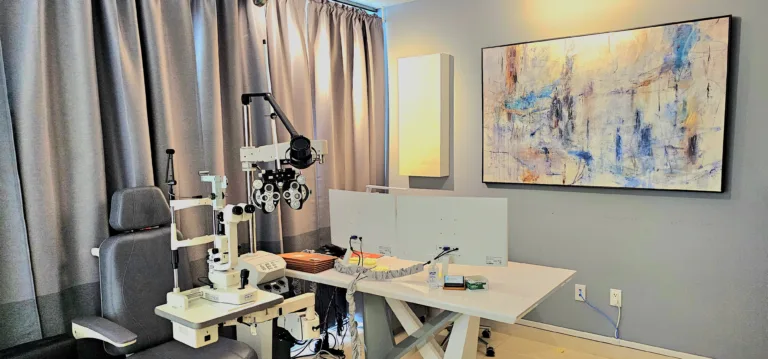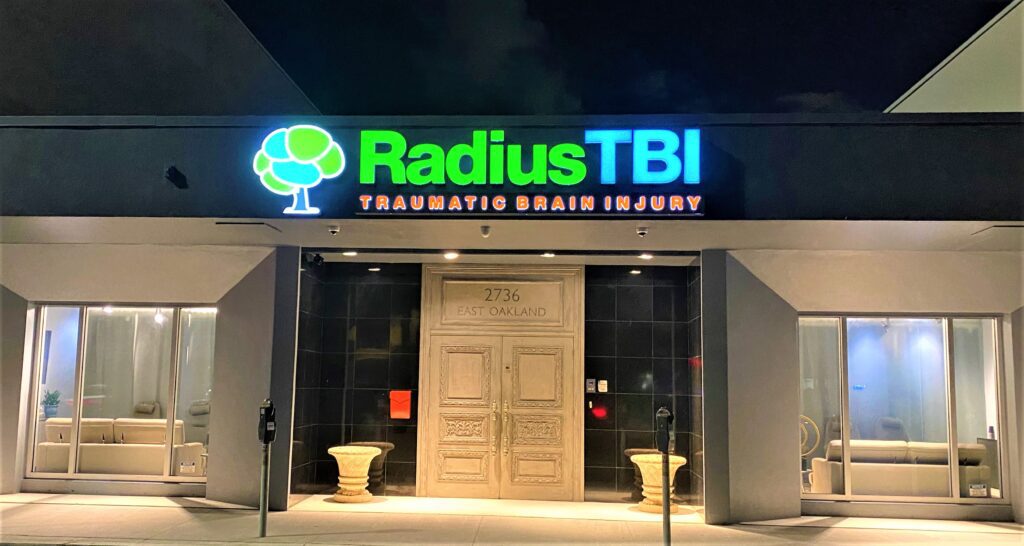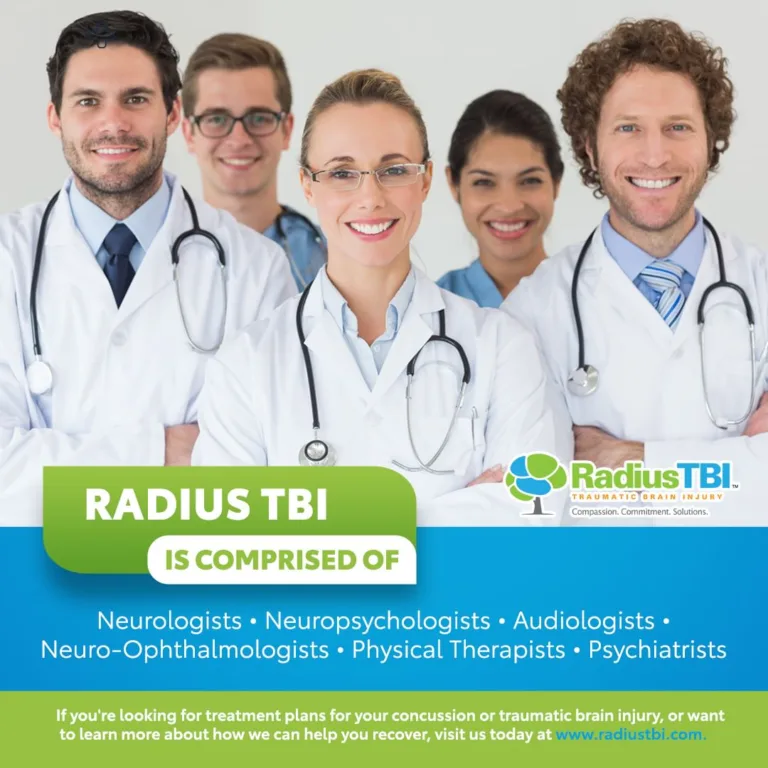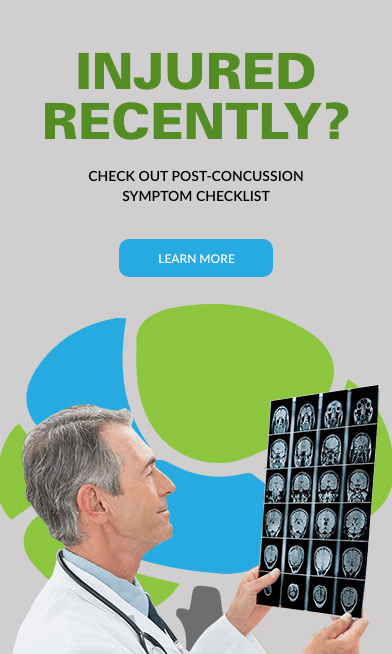Learn about eye problems after car accidents Protecting your eye & vision with Radius TBI
Eye Problems After Car Accidents Call Radius TBI 954-900-5072
Beyond the Surface: The Hidden Toll of Eye Problems After Car Accidents
Car accidents can be traumatic experiences, both physically and mentally. While immediate injuries like broken bones and whiplash often take center stage, the impact of such accidents can extend to less obvious areas, such as your eyes and vision. Additionally, there is a growing awareness of the risks associated with traumatic brain injuries (TBI) stemming from car crashes.
In this blog, we’ll explore the eye problems that can result from car accidents, the risks of TBI, and how Radius TBI can help protect your eyes and vision.
Radius TBI in Ft. Lauderdale, the presence of skilled neuro-ophthalmologists is paramount for individuals seeking comprehensive eye and brain care. These specialists possess a unique blend of expertise in neurology and ophthalmology, allowing them to diagnose and treat conditions that affect the visual system due to neurological issues.
Radius TBI: Ft. Lauderdale, Fl
Neuro-ophthalmologists at Radius TBI Ft. Lauderdale offer advanced care for patients dealing with a wide range of conditions, from traumatic brain injuries to optic nerve disorders and other neurologic visual disorders. Our utilize state-of-the-art diagnostic tools and treatments to help patients regain and maintain their visual health, improving their overall quality of life. Combining the expertise of neuro-ophthalmologists with Radius TBI's cutting-edge technology ensures that patients in Ft. Lauderdale receive the highest level of care for their visual and neurological needs.
Eye Problems After Car Accidents
Car accidents can lead to various eye problems, some of which might not manifest immediately but can become apparent in the days, weeks, or even months following the accident.
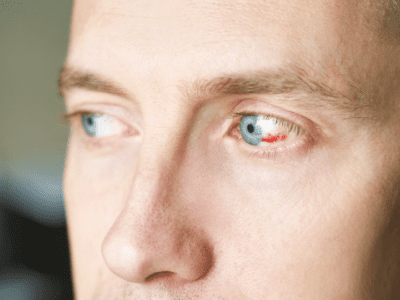
Here Are Some Common Eye Injuries Caused By Car Accidents That Can Arise:
- Traumatic Cataracts: Blunt force trauma to the head during a car accident can cause cataracts to develop or worsen. Cataracts cloud the eye's lens, leading to vision impairment.
- Traumatic Iritis Iritis is an inflammation of the iris, the colored part of the eye. It can occur due to direct trauma to the eye during a car accident. Symptoms include eye pain, blurred vision, sensitivity to light, and redness.
- Retinal Detachment/ Eye Floaters: Retinal detachment is a serious condition that occurs when the retina, the light-sensitive tissue at the back of the eye, becomes separated from its underlying supportive layer. A car accident can cause the retina to tear or detach, resulting in sudden vision loss or the perception of flashing lights or floaters.
- Corneal Abrasions: Corneal abrasions occur when the outermost layer of the eye, the cornea, is scratched or scraped. This can result from debris or shards of glass entering the eye during the accident. Symptoms include eye pain, redness, tearing, and sensitivity to light.
- Foreign Body Injuries: In a car accident, foreign bodies, such as dust, dirt, or glass fragments, can become lodged in the eye. These foreign objects can lead to infections, corneal ulcers, and potential vision loss if left untreated.
- Vision Changes Due to Head Injury: Car accidents can result in head injuries that impact the brain and, subsequently, vision. Vision problems like double vision, blurred vision, or difficulty focusing may arise.
- Blunt Trauma Blunt trauma to the eye, such as hitting the dashboard or steering wheel, can lead to a range of injuries, including orbital fractures, hyphema (blood in the front chamber of the eye), and traumatic cataracts. These injuries often require prompt medical intervention.
Eye Symptoms Following Traumatic Brain Injury (TBI)
It's important to note that the severity of these vision and eye symptoms can vary depending on the extent of the brain injury. Seeking prompt evaluation and treatment from our neuro-ophthalmologist is essential for managing these issues effectively.
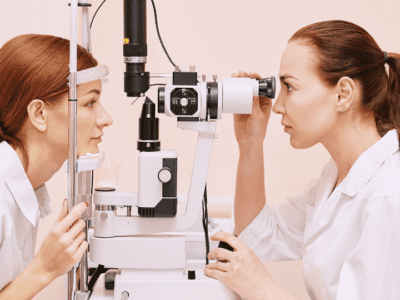
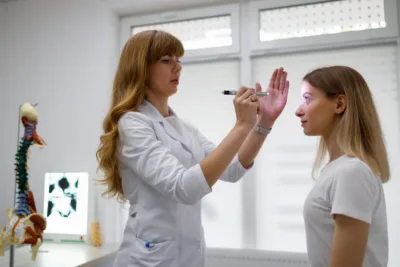
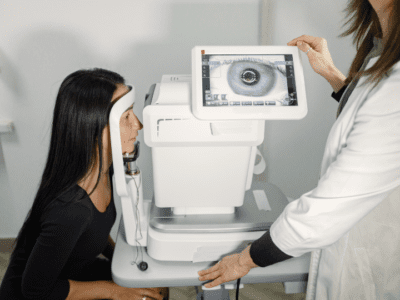
The eyes are a complex and delicate part of our sensory system, and when the brain sustains an injury, it can disrupt the intricate processes that enable us to see clearly. Here, we'll explore the 14 eye problems after car accidents that may occur:
1. Blurred Vision:
- Blurred vision is a frequent complaint following a TBI.
- This symptom often results from damage to critical components of the visual system, such as the optic nerve or other parts of the visual pathway.
- TBI can disrupt the brain’s ability to coordinate eye movements, leading to blurred vision and difficulties in focusing on objects.
2. Double Vision (Diplopia):
- Damage to the nerves controlling eye movement or misalignment of the eyes can result in double vision.
- Individuals experiencing diplopia see two images of a single object, which can significantly impact their visual perception.
3. Visual Field Defects:
- TBI can lead to partial or complete loss of vision in specific areas of the visual field.
- This condition affects an individual’s ability to perceive objects within certain regions of their field of view.
4. Light Sensitivity (Photophobia):
- Increased sensitivity to light is a common occurrence following TBI.
- Bright environments can become uncomfortable or even painful for individuals experiencing photophobia.
5. Difficulty Focusing:
- TBI can impair the eye’s ability to focus correctly, making it challenging to switch between near and distant objects.
- This difficulty in adjusting focus can impact daily activities.
6. Eye Tracking Problems:
- Smooth pursuit of moving objects with the eyes may be disrupted after a TBI.
- Activities such as reading or following a conversation can become challenging due to difficulties in tracking moving objects.
7. Eye Movement Problems:
- TBI can affect the control of eye movements, leading to difficulties in tracking moving objects or maintaining a steady gaze.
8. Nystagmus:
- Nystagmus is characterized by rapid, involuntary, uncontrollable movements of one or both eyes and can be a symptom of TBI.
9. Ptosis:
- Ptosis refers to the drooping of the eyelid, which may occur if the muscles controlling eyelid movement are affected by the injury.
10. Convergence Insufficiency:
- Convergence insufficiency can make it difficult to maintain focus on close objects, resulting in eye strain, headaches, and challenges with tasks like reading.
11. Reduced Depth Perception:
- TBI can impact depth perception, making it challenging to accurately judge distances.
12. Visual Processing Issues:
- TBI can disrupt the brain’s ability to process visual information, leading to difficulties in recognizing objects or understanding visual cues.
13. Visual Fatigue:
- Individuals with TBI may experience visual fatigue more quickly than before the injury, affecting their endurance for daily activities.
14. Dry Eye Syndrome:
- Reduced blink rate or incomplete blinking due to TBI can result in dry eyes, causing discomfort and potential damage to the ocular surface.
Early evaluation and tailored interventions can help mitigate these visual challenges and improve the overall quality of life for those affected by TBI.
Coping with Eye Problems
Dealing with eye problems after a car accident can be physically and emotionally challenging.
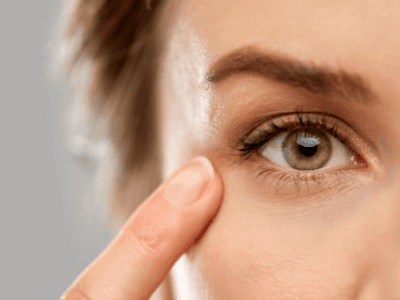
Here are a few tips to help you cope:
- Follow your doctor's instructions: Be diligent in following your eye care professional's advice regarding medications, eye drops, and any necessary follow-up appointments.
- Rest your eyes: Give your eyes ample time to recover by avoiding activities that strain them, such as reading, excessive screen time, or driving.
- Use protective eyewear: If recommended by your eye care professional, wear protective glasses or goggles to shield your eyes from further injury or infection during the healing process.
- Seek emotional support: Reach out to friends, family, or support groups to help you navigate the emotional challenges that may arise from your eye problems.
Protecting Your Eye and Vision with Radius TBI
At the heart of Radius TBI's approach is its collaboration with skilled neuro-ophthalmologists. These specialists bring a deep understanding of both neurology and ophthalmology to the table, allowing them to diagnose and treat TBI-related visual complications effectively.
Here's how Radius TBI can help:
- Early Detection: Radius TBI employs cutting-edge diagnostic tools to assess the extent of visual and neurological damage caused by TBI. These assessments provide a clear picture of the individual's condition, guiding personalized treatment plans.
- Personalized Care: With the expertise of neuro-ophthalmologists, Radius TBI tailors treatment plans to address each patient's unique needs. Whether it's managing double vision, improving eye coordination, or addressing visual field loss, the approach is highly individualized.
- Rehabilitation: Radius TBI doesn't stop at diagnosis and treatment. Rehabilitation is a crucial aspect of recovery, and the center offers comprehensive rehabilitation programs to help patients regain as much function as possible.
- Improving Quality of Life: By addressing TBI's visual and neurological consequences, Radius TBI aims to enhance your overall quality of life and well-being.
Car accidents can significantly impact your eyes and vision, and they carry the risk of traumatic brain injuries. Recognizing the potential risks and addressing them promptly is crucial for your long-term health and well-being.
With advanced technologies like Radius TBI, you can protect your eyes and vision, ensuring that you receive the care and support you need to recover fully from the aftermath of a car accident.
If you or someone you know has experienced eye problems after a car accident, consult with an eye care professional to receive proper diagnosis and treatment. Your vision is invaluable, and taking care of your eyes should always be a top priority.
Did you know?
There were more than 214,000
TBI-related hospitalizations in 2020 (https://www.cdc.gov)
Latest News & Updates
Blogs

How Do You Know If Your Child Has Autism?
Recognizing the early signs and symptoms of autism is crucial for parents and caregivers, as early intervention can significantly improve

Head/Brain Concussions & Injured Workers in the Workplace
According to a 2020 National Institute of Health study, 1.4 to 3.8 million Americans suffer concussions yearly. That is a

Meet our best Psychologists in Broward County, FL Location
This blog will highlight a group of exceptional psychologists – Dr. Ann Marie Paolino, Dr. Beatriz Amador, and Dr. Esther
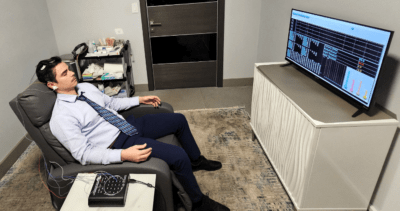
Unlocking the Potential of Your Brain with Neurofeedback
Do you experience anxiety, ADHD, depression, or sleep disorders? Neurofeedback can help you feel better overall and reduce the symptoms


